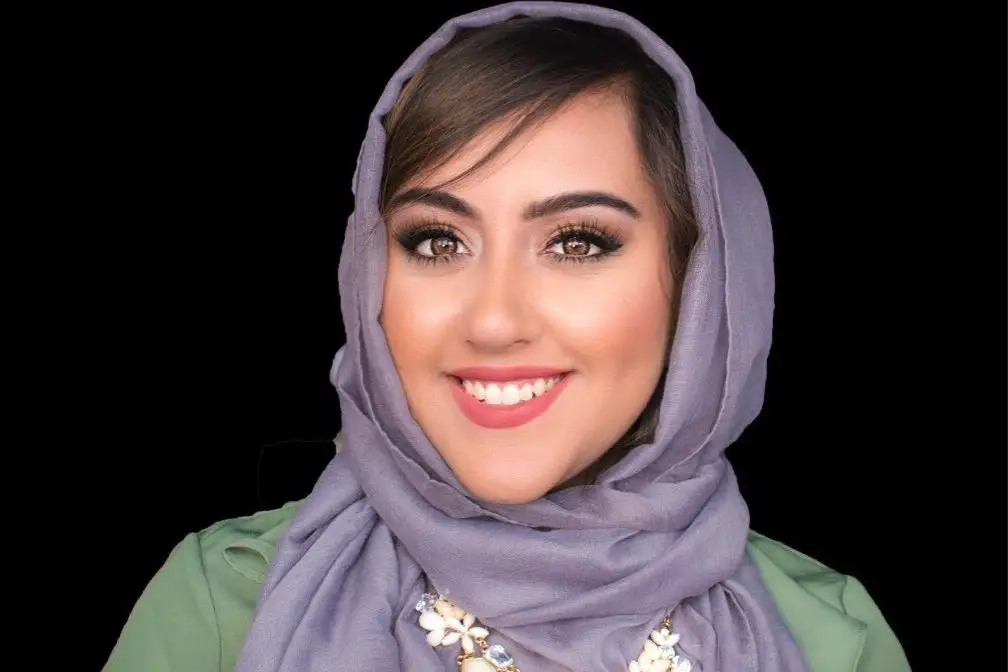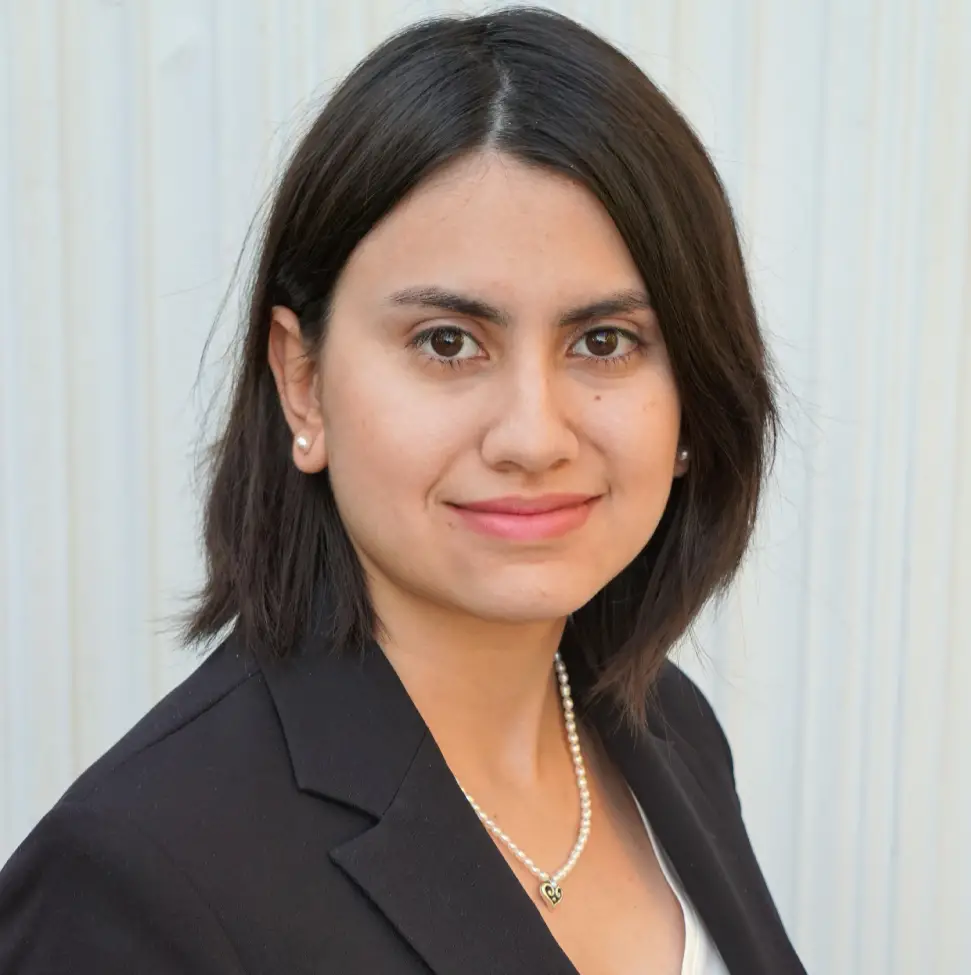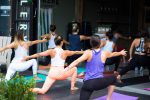Bushra Amiwala, a marketing and finance major at DePaul University, is currently campaigning for a seat on the Cook County Board of Commissioners, representing the 13th district in Illinois. Amiwala’s experiences in politics has shaped her perception of the democratic process and she sees a bright future in the next generation of activists.
Isabelle Mencia: Were you always interested in activism and politics?
Bushra Amiwala: I have always had these strong opinions and have been very vocal about it, but I never did anything until high school, where I was finally given a platform to speak at this event or work with an organization.
In the beginning, it was almost like bottling it in because I didn’t know what to do with it. In high school, I had a lot of teachers who saw that passion in me and gave me outlets to work that out.
IM: What unexpected things have you learned from campaigning?
BA: Aside from campaigning and some of the obvious things, I think I can now run a business from the bottom up. I learned random skills such as event planning, graphic design and web design.
These are the things that I have had to do myself due to not having the money to pay someone to do it. It involved a lot of YouTube tutorials and learning things on the fly.
Obviously, there is the campaigning aspect and the policy and the public speaking, but there are skills that are applicable beyond that. Hosting a fundraiser for 400 people was insane; I had to coordinate so many people.
Every time I have to do something, instead of explaining what I want from someone for 10 minutes, it takes 10 minutes to do it myself. Not being the middleman for mundane tasks like that is great.
IM: Were there any obstacles?
BA: None of the problems have been because of my personal organizational skills but instead of how politics are in general. For example, one of the candidates in the race accused me of fraud, saying that there was no way I raised this much money without ever filing an A-1 form, which is a form you file when one person gives you $1,000.
He is right, though, I have never filed an A-1 form but that’s because no one has ever given me a $1,000. So that was really scary, and we had the lawyers look at it and I sent a response accordingly, but if we didn’t know what to do or take action in the proper amount of time, it would have resulted in a $20,000 fine. Things like that you can never learn unless you experience them.
IM: Is it difficult to juggle school responsibilities and campaigning?
BA: It’s not difficult to manage it because I am in full control of my schedule. I was working quite a few jobs when I first began campaigning, but one by one I quit them. If I have a phone call at a certain time or if I have to speak at a school, then I schedule it accordingly.
People are so understanding of my schedule; a lot of the candidates campaigning have full-time jobs, families and things of that nature. School only takes up 6 hours of my week and campaigning has 17-hour days every single day.
I wake up early in the morning, go to sleep pretty late at night and am back on the grind the next day. So, there’s a lot you can do in 17 hours especially on the weekends.
The idea of having your schedule in your own hands means knowing that if I don’t go to an event tonight because I’m sick, I can do that and there will not be anyone saying I can’t. One of the hardest things for me to come to terms with during this campaign was realizing that I don’t have to go to 7 events in a day to be productive.
Me not going to one event will not be the reason I won’t win the race. It’s better that I am healthy, ready-to-go, energetic and able to keep up with everything campaign-wise in the long term.
IM: Were your parents concerned about you running for office?
BA: At first, there was a fear affiliated with it, especially with the political climate, so I don’t blame them at all. That fear clouds your judgment in what decisions you want to make and what decision is best for you. Sure, you want to make this impact, but if your safety is on the line, is it really worth doing and should you be the one to do it?
At the time no one my age was doing something like this, now we see more people stepping up nationally; people are seeing that their voices have so much power.
They are very supportive now and it is really nice to see how involved they are with the process, from inviting their friends to my meet and greets to getting people to register to vote. You become so much more appreciative of the democratic process once you know someone who’s run for something.
IM: Did Trump’s victory in the 2016 election have an impact on your decision to run?
BA: His candidacy as a whole drove me to get involved at the political level. I shied away from politics because I believed all those bad things people say about politicians and their corruption.
I had mostly worked with non-profits at the time and I realized there is a political component to all of them, so as much as I tried to shy away from it, the role they play in my life will always be there.
It wasn’t until Trump’s campaign that I had a lot of friends who expressed interest in casting a ballot for him and I didn’t understand why. I also didn’t understand what Republicans cared about and I really wanted to know what those issues were. That’s when I started to work on my first campaign, summer of 2016, with our senator, who happened to be a Republican.
It was an incredible opportunity where all I had to do was collect polling data. It was the people on that campaign who saw the way I interacted with everyone and despite our differences, I was able to get the most survey results.
I got along with everyone I worked with, including the red-shirt Republican voters we interacted with on a day to day basis. They were the ones who encouraged me to run for office.
IM: So, if it wasn’t for the political climate surrounding Trump, do you think you would have run for office?
BA: No, I don’t think I would have ever worked on a campaign and I would have never known that you could run at this age.
IM: Did you see discontent with students about politics in general?
BA: There was always the belief that our individual votes don’t matter, so who cares who we vote for, that was their way of going against the system. That belief was also there with those people who were passionate about Bernie Sanders and voted for him.
Discontentment and not having stakes in your current system is some of the things that result in people not engaging on a certain level and not having hope. That was another factor in me running because if I don’t do this then who ever will?
I also think that people are more inclined to vote for someone who looks like themselves. If I can get young people to come out and vote because they are excited about someone who is the same age as them, then we can drive historical voter turnout in this primary and that’s something I’m really excited about.
This is more than just getting me elected, it’s a movement with young people and we see that with the political organizing in Florida. It is because students realize that with social media, they can organize and make a huge impact. It only takes a couple of days to plan an event and for it to go viral.

















